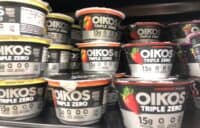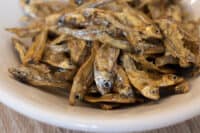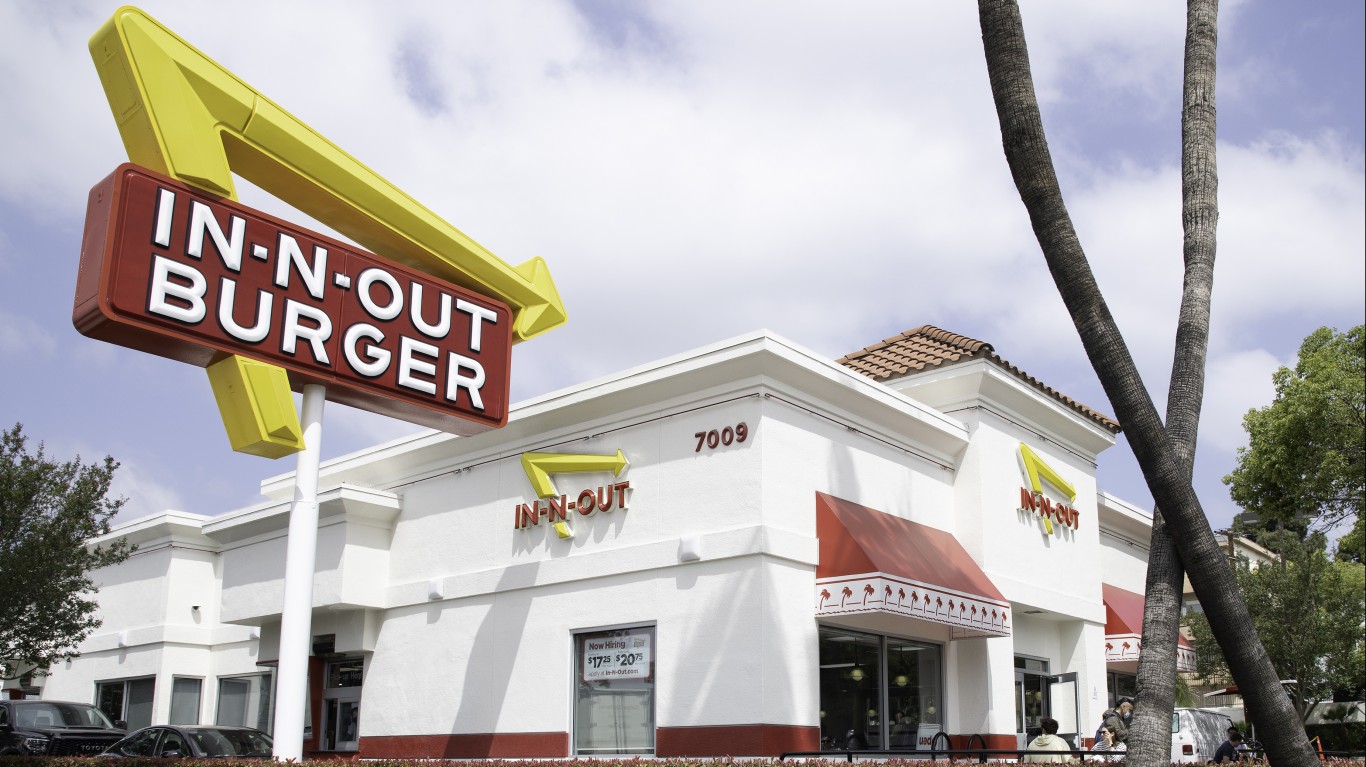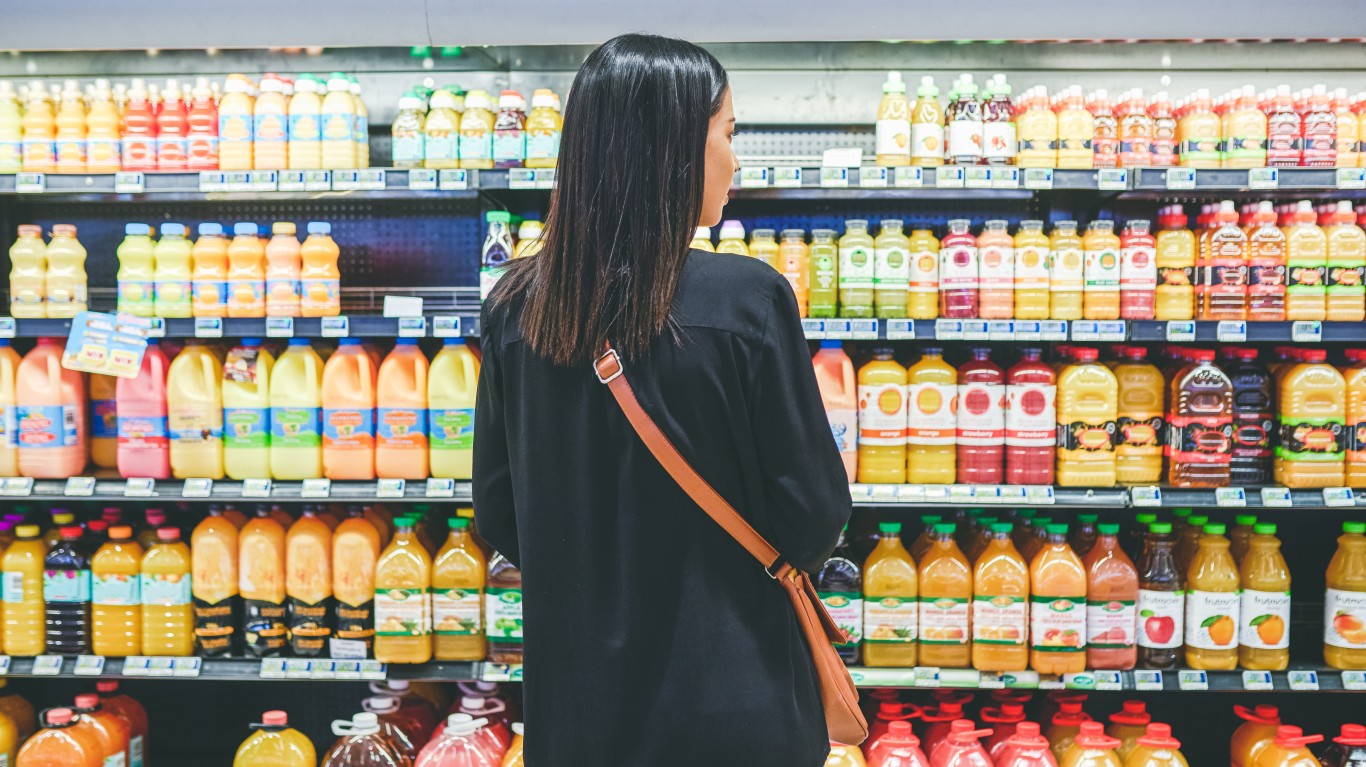
Although the number of FDA food recalls only increased marginally from 2021 to 2022 – from 414 to 423 – the total number of food units (for instance, individual containers of baby formula) that were recalled increased by 700% over that period, from 52.1 million to 416.9 million. (These were the 30 biggest U.S. food recalls of 2021.)
To identify the 20 foods that have been recalled by the FDA since the beginning of March, 24/7 Tempo reviewed food- and drink-related items from Recalls, Market Withdrawals, & Safety Alerts, a web page maintained by the U.S. Food and Drug Administration that provides information gathered from press releases and other public notices about recalls of FDA-regulated products. (Not all recalls are posted on the FDA’s page or become the subject of press releases.)
Some food items are recalled when they are found to contain infectious agents including Cronobacter and Listeria. The biggest food recall story of 2022 involved baby formula possibly contaminated with Cronobacter sakazakii bacteria that was implicated in at least two infant deaths.
Click here for more on 20 major food recalls you should know about
Cronobacter is not dangerous to most people but could be fatal if ingested by infants – especially premature newborn, underweight, or immunocompromised infants. Likewise, Listeria monocytogenes bacteria are harmless to some people but can cause severe illness in the elderly and people with chronic diseases or weakened immune systems. Listeriosis can also lead to miscarriage in pregnant women. (Read about 15 famous people who allegedly died of food poisoning.)
The biggest reason for food recalls, however, is the presence not of infectious agents but of undeclared allergens. Either due to contamination from a manufacturing plant or mislabeling, some products that contain dairy, soy, tree nuts, or other allergens hit the shelves without proper disclosure. Undeclared allergens have been the leading cause of FDA food recalls for the last five years.

March 1: Cocktail shrimp
> Reason: Listeria monocytogenes
> Brand & company: Tapas, made by Lidl US
German-based discount grocer Lidl voluntarily recalled their Tapas brand 7 oz. packs of ready-to-eat cocktail shrimp after routine testing came up positive for Listeria. To date, Lidl has received no reports of illness due to consumption of the shrimp.
[in-text-ad]

March 3: Various snack foods
> Reason: Undeclared fish, coconut, shea nut
> Brand & company: Various, made by Daiso California LLC
The Japanese variety store Daiso recalled 10 different snack foods including salted peanuts, ramen, and chocolates for containing undeclared allergens including bonito, tuna, sardines, coconut, and shea nut.

March 8: Dr Rima Recommends Nano Silver 10 ppm dietary supplement
> Reason: Product makes unsubstantiated health claims to prevent, treat, or cure COVID-19
> Brand & company: Dr Rima Recommends, made by Natural Solutions Foundation
In December 2021, a federal court ordered Natural Solutions Foundation to cease sales of a Nano Silver product that the company claimed could treat, prevent, or cure COVID-19. On March 7, 2023, the company issued a recall informing all distributors and vendors to pull the product.

March 15: Strawberry Granola & Greek Yogurt Parfait Bar
> Reason: Listeria monocytogenes
> Brand & company: Clio, made by Clio Snacks
Clio Snacks recalled 581 cases of Strawberry Granola & Greek Yogurt Parfait Bars after routine testing showed possible Listeria contamination. The cases were distributed to Walmart stores. No illnesses have been reported to date.
[in-text-ad-2]
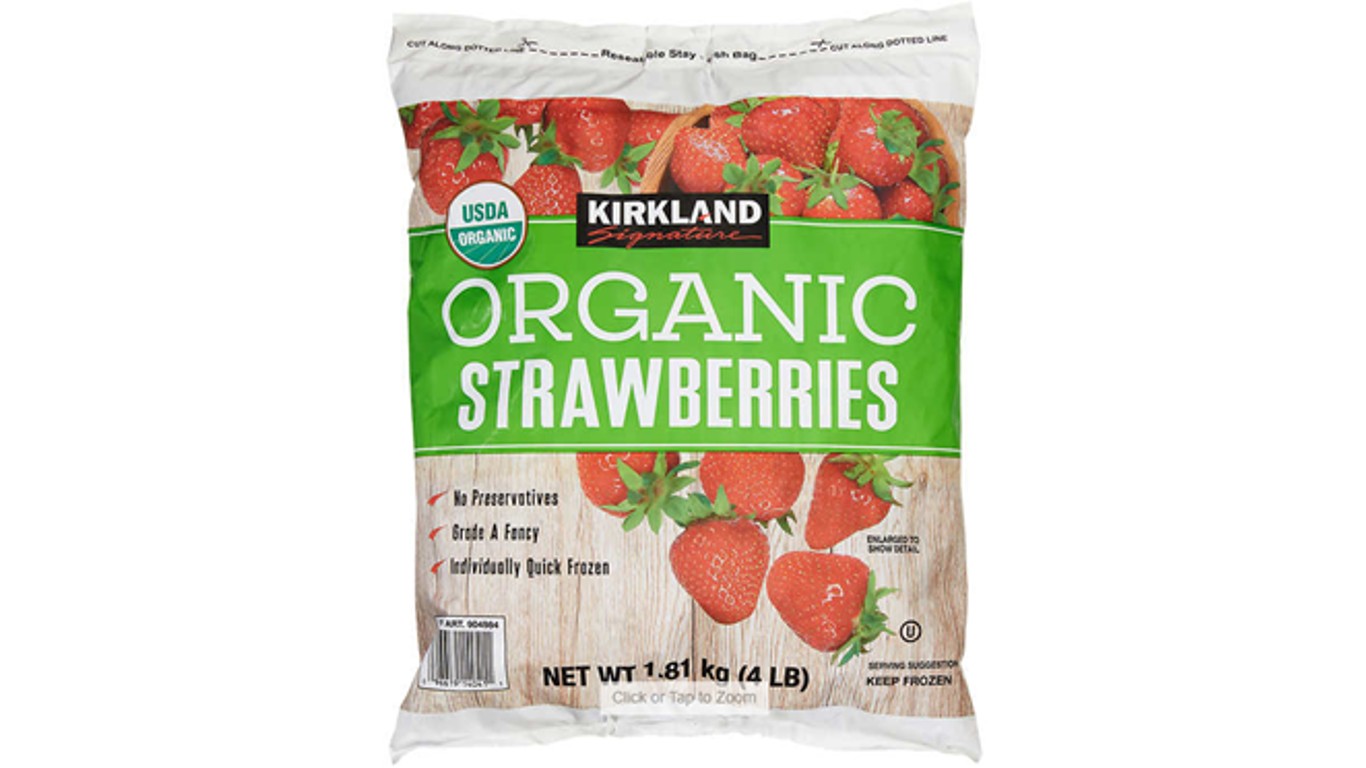
March 16: Frozen organic strawberries
> Reason: Hepatitis A
> Brand & company: Kirkland Signature, made by California Splendor, Inc.
After an outbreak of hepatitis A infections in Washington state, CDC investigators found that all sick individuals had eaten frozen strawberries grown by the same supplier. These strawberries were included in 4 lb. bags of Kirkland Signature Frozen Organic Strawberries sold at certain Costco stores.
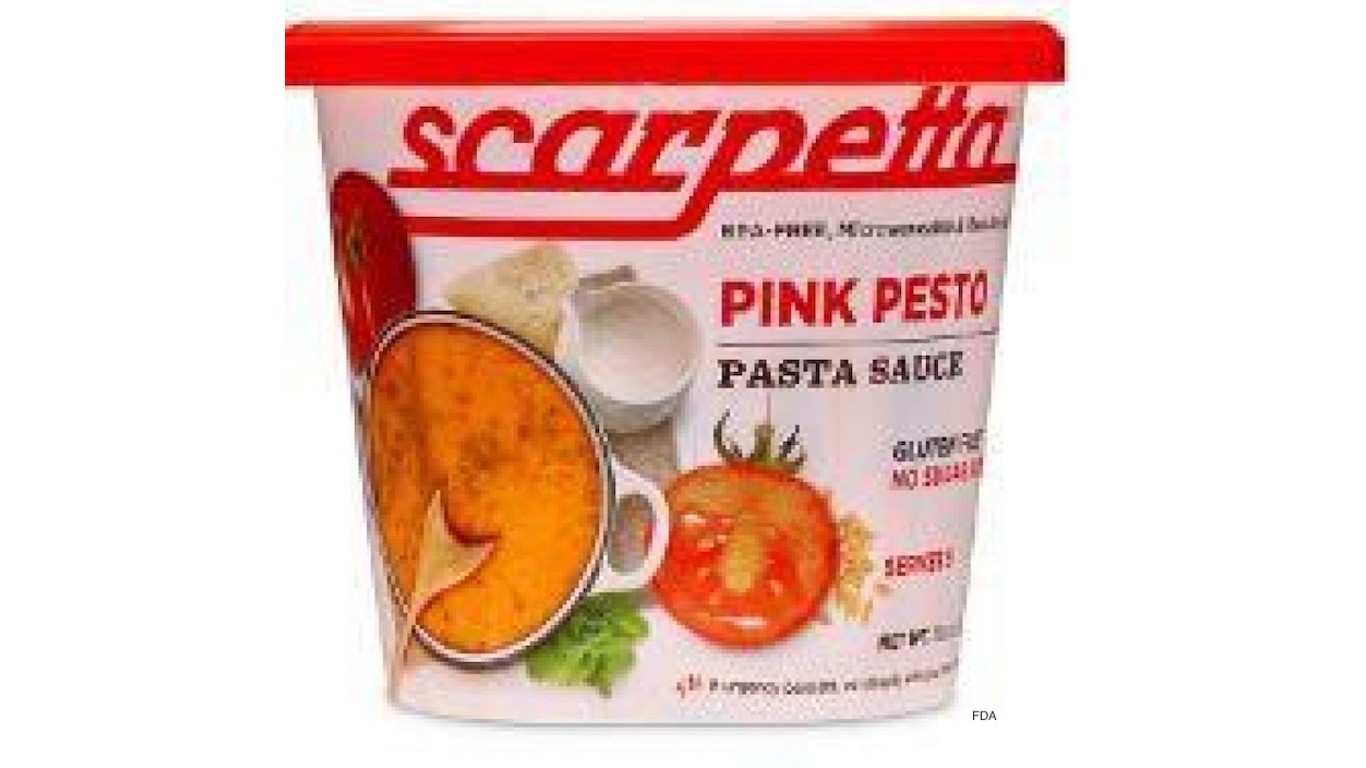
March 16: Pink Pesto Pasta Sauce
> Reason: Undeclared pine nuts
> Brand & company: Scarpetta, made by BC Gourmet USA, Inc.
Because of the undisclosed presence of pine nuts, a potential allergen, 906 units of Scarpetta Pink Pesto Pasta Sauce have been recalled. These containers were distributed to small retailers in Massachusetts and Bermuda, and were also sold online.
[in-text-ad]

March 17: Frozen organic strawberries and fruit blend
> Reason: Hepatitis A
> Brand & company: Simply Nature, Vital Choice and others, made by Scenic Fruit Company
After an outbreak of hepatitis A infections in Washington state that CDC investigators linked to strawberries from a supplier in Baja California, multiple companies recalled products containing these strawberries. The frozen berries were sold at certain Costco, Aldi, KeHE, Trader Joe’s, Vital Choice Seafood, and PCC Community Markets.
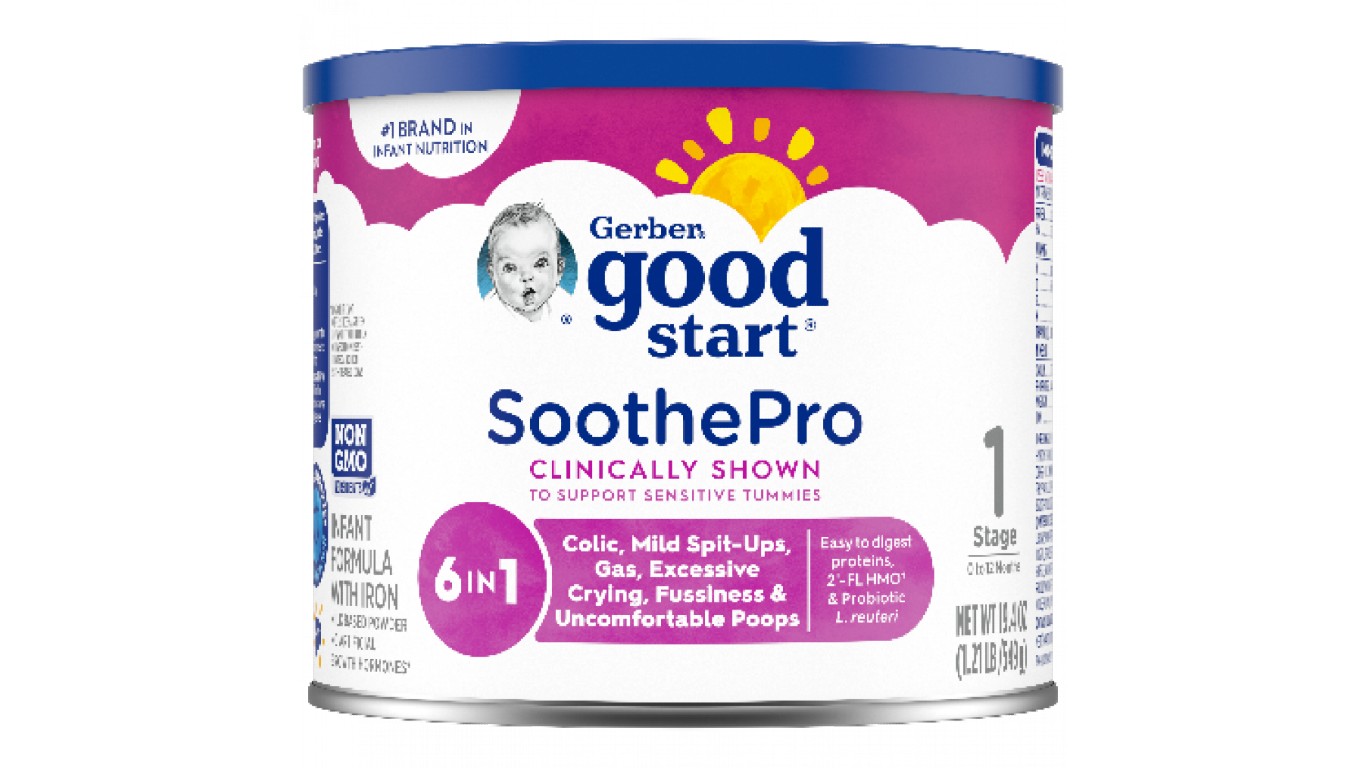
March 17: Powdered Infant formula
> Reason: Potential Cronobacter sakazakii contamination
> Brand & company: Gerber Good Start, made by Perrigo Company plc
Although no distributed product has tested positive so far, Perrigo has issued a voluntary recall on certain lots of Gerber Good Start Soothe Pro Powdered Infant Formula due to the potential presence of Cronobacter.
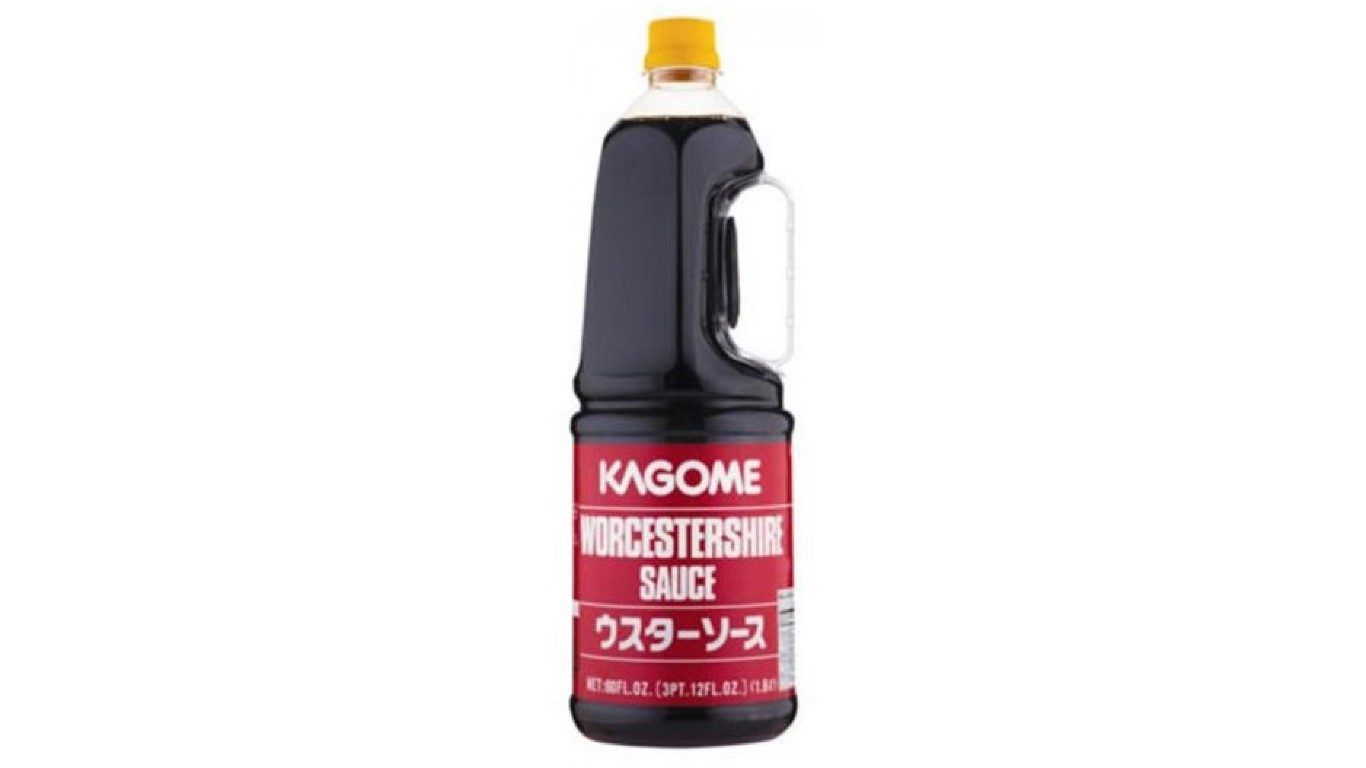
March 20: Worcestershire Sauce, Chuno Sauce, and Take Out Tonkatsu Sauce
> Reason: Undeclared Soy
> Brand & company: Kagome, made by Mutual Trading Co., Inc.
After several Kagome brand sauces were released in packaging that did not declare the presence of soy, Mutual Trading Co. voluntarily recalled certain units of Worcestershire sauce, Chuno sauce, and Tonkatsu sauce. The products were mostly distributed to restaurants, although some were also sent to retail stores.
[in-text-ad-2]

March 22: White hot dog buns
> Reason: Potential or Undeclared Allergen/Sesame
> Brand & company: Our Family, made by Perfection Bakeries D/B/A Aunt Millie’s
Due to the presence of undeclared sesame, Aunt Millie’s recalled certain 8-packs of Our Family White Hot Dog Buns that were distributed to stores in Illinois, Indiana, Michigan, and Ohio. So far, one consumer reaction to the allergen has been reported.

March 23: Gluten Free Reese’s Pieces Brownie Brittle
> Reason: Undeclared Wheat
> Brand & company: Sheila G’s, made by Second Nature Brands
Due to cross-contamination at a manufacturing plant, some 4 oz. packages of Sheila G’s Gluten Free Resse’s Pieces Brownie Brittle may contain wheat. The contaminated products were distributed to stores nationwide and through online sales. One illness in connection to the allergen has been reported so far.
[in-text-ad]

March 29: Various Dark Chocolate Fruit and Peanut Bites
> Reason: Undeclared milk
> Brand & company: Salento Organics, made by Salento Organics
Due to a breakdown in the company’s production processes, Salento Organics released batches of snacks that may contain undeclared milk. Certain packages of Dark Chocolate Pitaya, Goldenberry, Mango, Banana, Pineapple, and Peanut Bites were affected.
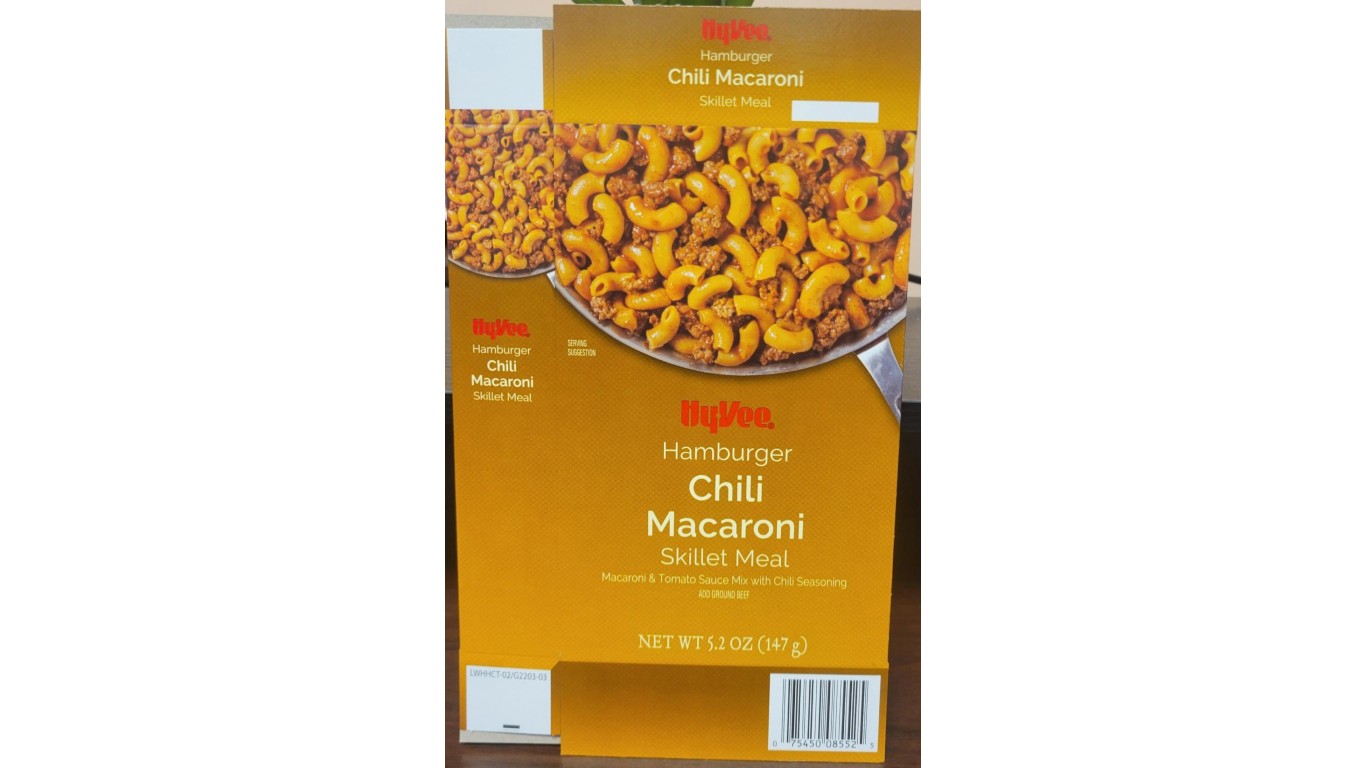
March 29: Hamburger Chili Macaroni Skillet Meal
> Reason: Undeclared milk
> Brand & company: HyVee, made by Gilster-Mary Lee Corp.
Because it may contain undeclared milk, one lot of HyVee’s Hamburger Chili Macaroni Skillet Meal has been voluntarily recalled. The affected boxes were sold at HyVee supermarkets and Dollar Fresh Market stores in eight Midwestern states.

March 29: Worcester Sauce; Chuno Sauce
> Reason: Undeclared soy
> Brand & company: Kagome, made by North American Food Distributing Company, Inc.
More than a week after Kagome recalled various sauces that may have contained undeclared soy, the company recalled additional batches of 16.9 oz. Worcestershire and Chuno sauces due to the potential presence of the same substance.
[in-text-ad-2]

March 31: Biltmore Smoked Wild Sockeye Salmon
> Reason: Potential foodborne illness/Listeria
> Brand & company: Biltmore, made by Seven Seas International USA, LLC.
After routine testing detected the presence of Listeria, Seven Seas International USA of St. Petersburg, Florida, recalled 295 cases of potentially contaminated Biltmore Smoked Wild Sockeye Salmon that were distributed exclusively to Publix supermarkets.
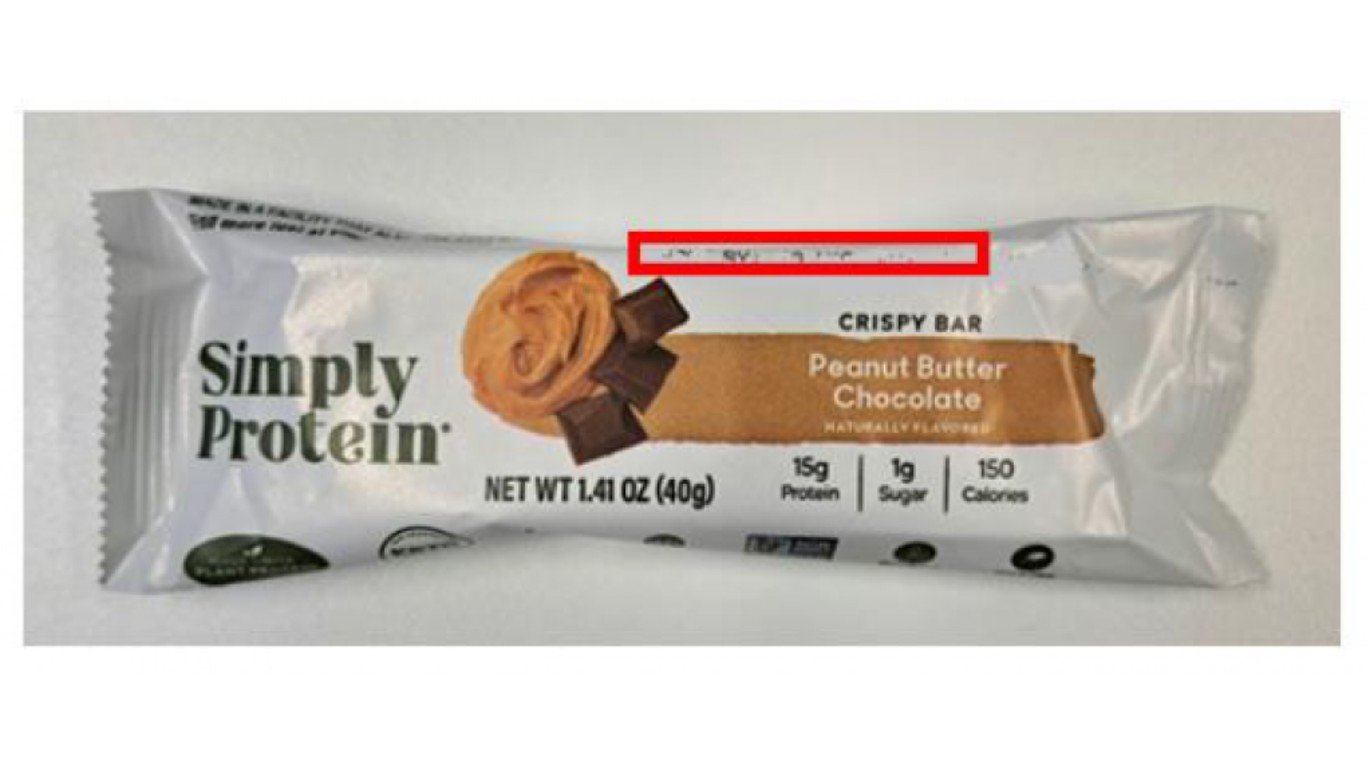
April 3: Peanut Butter Chocolate Crispy Bar
> Reason: Undeclared tree nuts (cashew)
> Brand & company: SimplyProtein, made by Wellness Natural USA Inc.
After a consumer complaint alerted the company to the possibility of contamination, Wellness Natural USA recalled a single lot of Simply Protein Peanut Butter Chocolate Crispy Bars due to the possibility of undeclared traces of cashew. The bars were included in 15-count variety packs sold at Costco stores in eight states.
[in-text-ad]
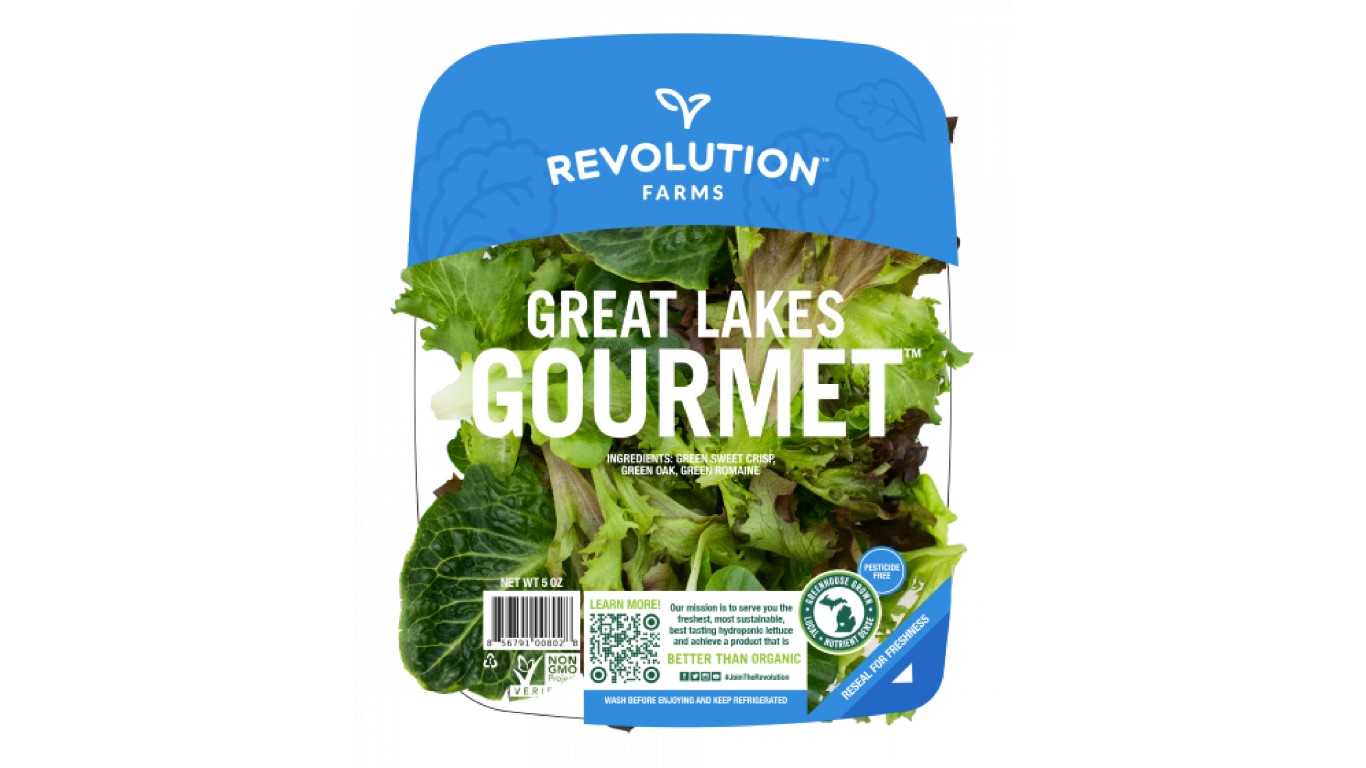
April 5: Lettuce & Salad Kits
> Reason: Listeria monocytogenes
> Brand & company: Multiple brand names, made by Revolution Farms
After a random sample tested positive for Listeria, Revolution Farms recalled 15 different lettuce products (including romaine and spring mix) packed between March 3 and March 11. The recalled packages include 5 oz. plastic retail trays, 6 oz. salad kits, and 3 lb. bulk bags sold to over a dozen Midwestern grocers and food distributors.
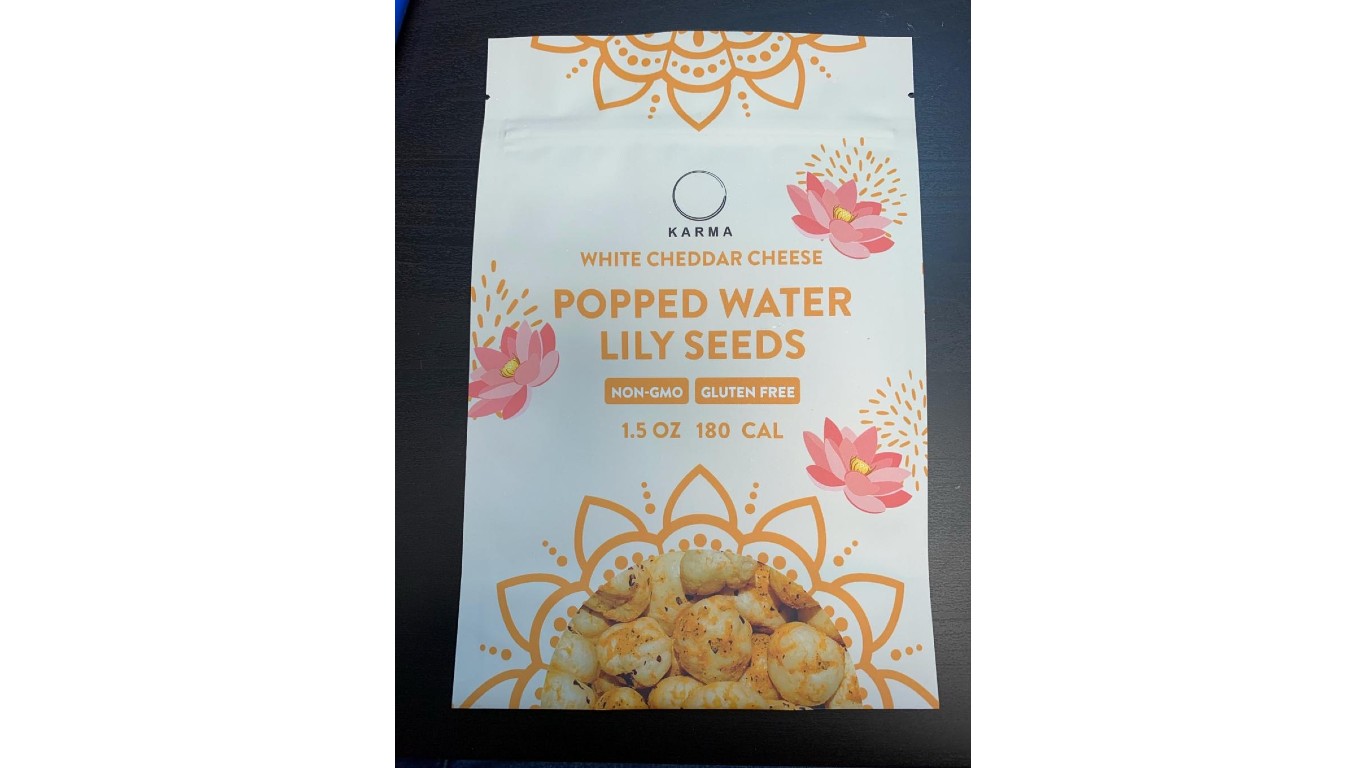
April 5: White Cheddar Cheese Popped Water Lily Seeds
> Reason: Undeclared milk
> Brand & company: Karma, made by Karma Spices and Trading Company, LLC
Despite listing “white cheddar cheese powder” as an ingredient, retail packages of Karma White Cheddar Cheese Popped Water Lily Seeds do not clearly state that the product contains milk. Production of the snack has been suspended until the FDA has seen that the labeling issue is resolved.

April 7: Lettuce & Salad Kits
> Reason: Listeria monocytogenes
> Brand & company: Multiple brand names, made by Revolution Farms
After being linked to a multi-state outbreak of listeriosis, Revolution Farms expanded the April 5 recall to include all lettuce products sold under their brands, including various whole heads of lettuce, 5 oz. plastic retail trays, 6 oz. salad kits, and 3 lb. bulk bags that could potentially be contaminated. The products were sold to over a dozen Midwestern grocers and food distributors.
[in-text-ad-2]
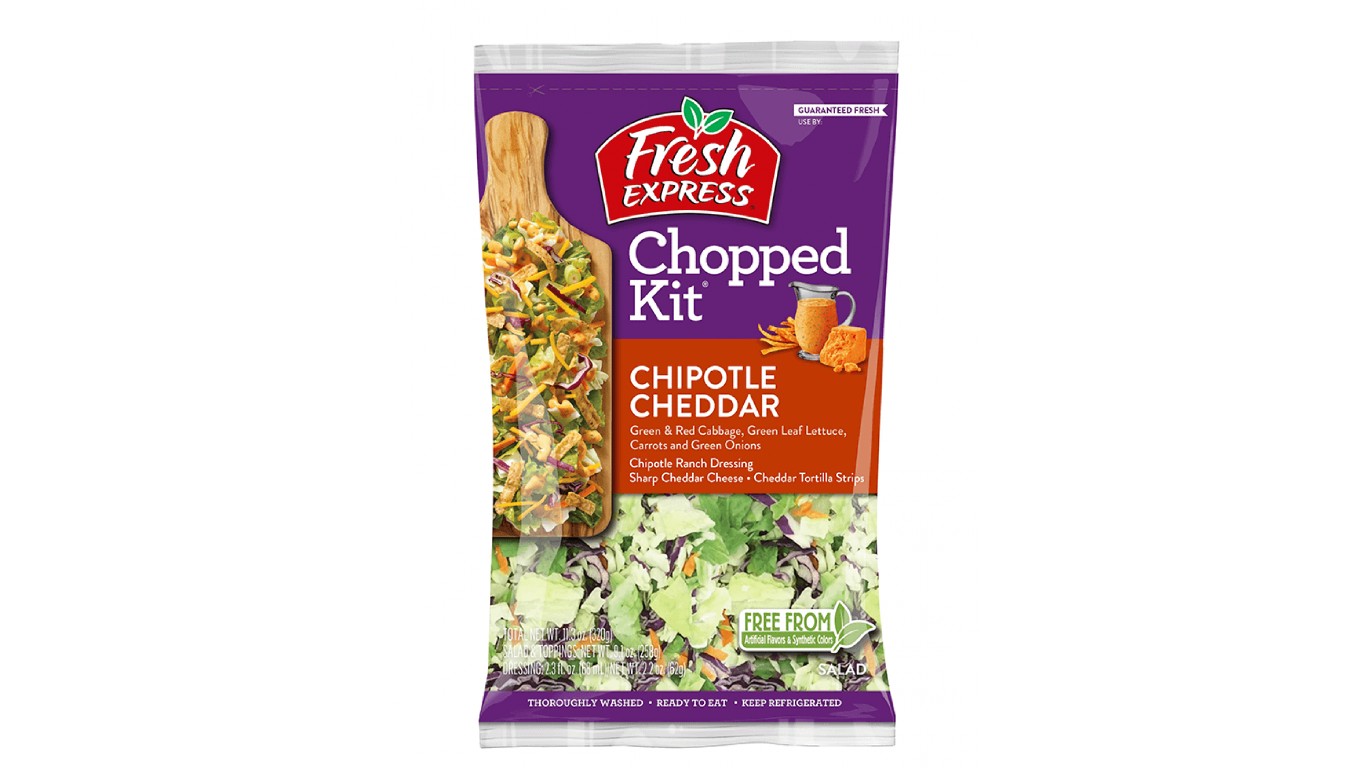
April 7: Salad Kits
> Reason: Listeria monocytogenes
> Brand & company: Fresh Express & Publix, made by Fresh Express Incorporated
When a random sample of an already-expired salad kit tested positive for Listeria, Fresh Express Inc. announced a limited recall of three varieties of salad kits with use-by dates of March 31 and April 2 that were sold at retailers in Florida, Georgia, North Carolina, South Carolina, and Virginia.
Thank you for reading! Have some feedback for us?
Contact the 24/7 Wall St. editorial team.
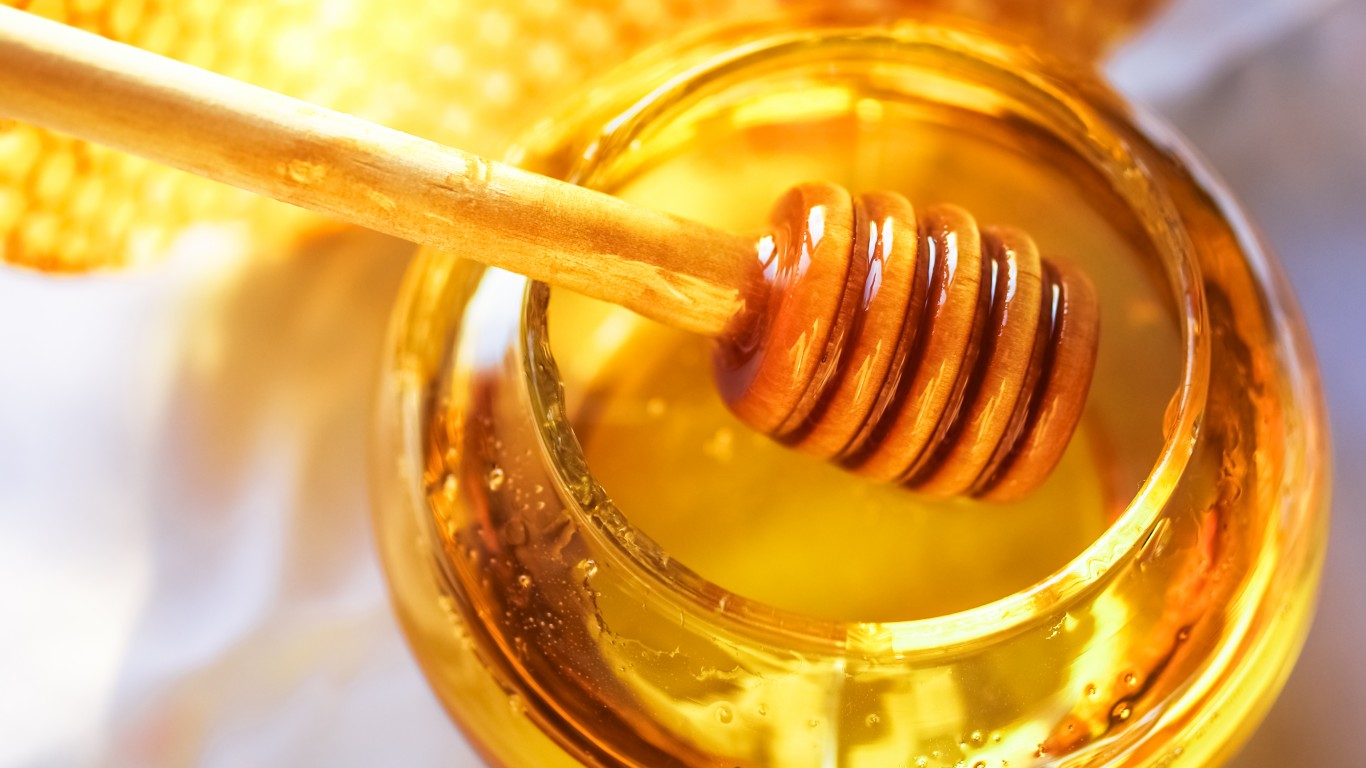 24/7 Wall St.
24/7 Wall St.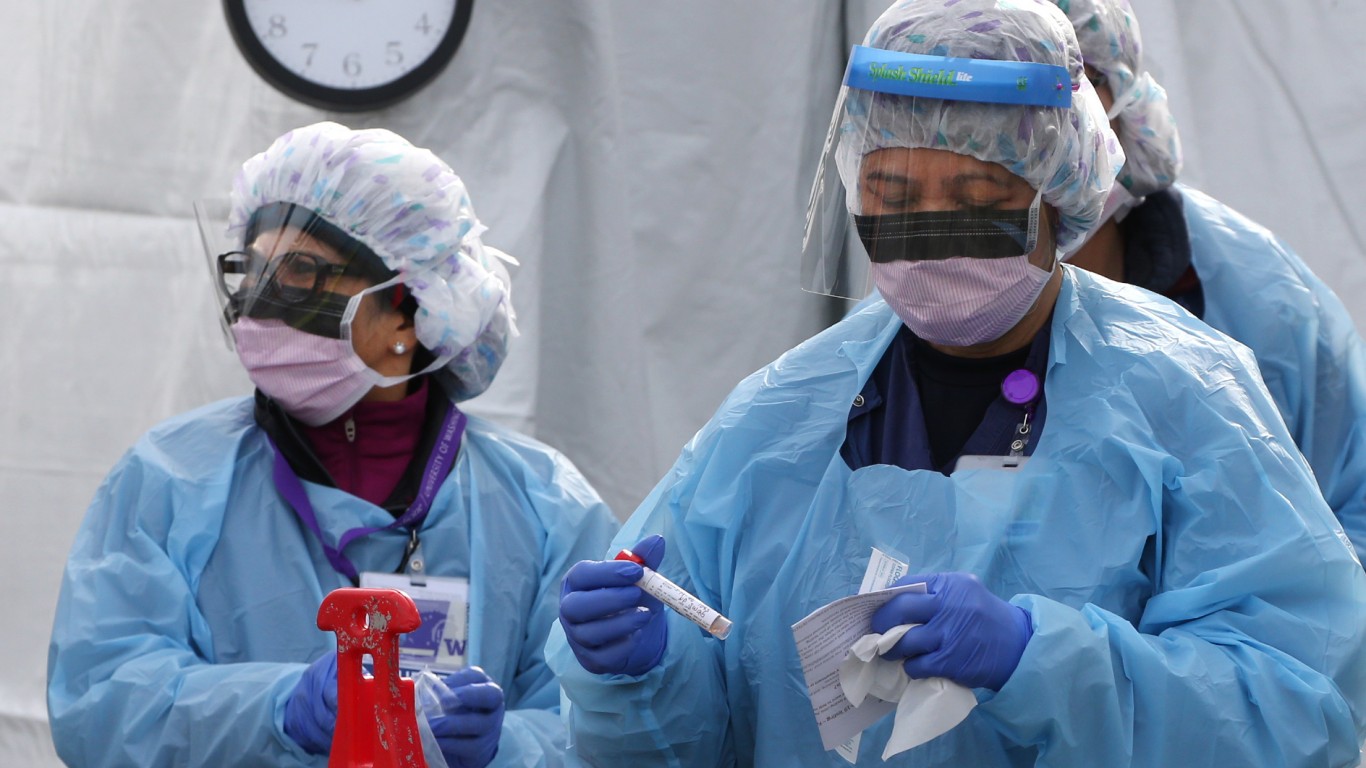 24/7 Wall St.
24/7 Wall St.